The Internally Displaced Persons (IDPs) from North Waziristan will soon be returning home. But the word ‘home’ just means a piece of land now. For them, the place they left may not even look like it was before operation Zarb-e-Azb started. Nothing will be the way they left it; nothing will be new. Indeed, the government and military will be supporting IDPs to settle down, but nothing will be like it used to be. It may even turn out to be starting all over again; a new life.
Last month, Inter-Services Public Relations (ISPR) Director General (DG) Asim Saleem Bajwa announced that the returning of IDPs will begin from February. This is an indication that the operation is about to end.
Homes, schools, hospitals, shops, markets, playgrounds, restaurants, offices etc—all gone. So, what happens next? IDPs are about to go back to a place where terrorists are being killed, hideouts being destroyed, bombs and all sorts of high-tech weapons being used. Even the thought of it brings goose bumps.
Who will be returning? Individuals and families. But the word ‘family’ includes men, women, old-aged people and children.
Without doubts, armed conflict does lead to population movements, especially when there is a risk of civilians getting harmed. In the case of Zarb-e-Azb, over 800,000 IDPs were recorded by FATA Disaster Management Authority (FDMA). It has registered 430,475 children, who escaped the on-going conflict along with parents.
Article 25 of the Universal Declaration of Human Rights recognizes that mothers and children are entitled to special care and assistance, and that all children have the right to social protection.
Wherever the movement occurs, displacement has a deep physical, emotional and developmental impact on children. The dislocation has also affected their academics adversely. It should be remembered that North Waziristan is an area where total literacy rate is 15.88 per cent, including 26.77 per cent among men and 1.47 per cent among women. Like other tribal areas in the country, the education sector in North Waziristan is in shambles because of militancy. This makes one thing clear: literacy rate has gone lower after operation Zarb-e-Azb was launched.
It is important to understand that when displacement takes place, IDPs are in an area which is not known to them and insecurities become a big concern. Children, in such scenarios, find it hard to socialize. Since the environment is new, they go into their shell and this may lead them to isolating themselves. It is hard for them to trust people except their close family members. For example, when a person moves to a new city, he/she takes time to settle down. The person has to find a place to live, sometimes a job and all what is needed to make the new city his/her home. Since the environment is new, the person is extra careful. So just imagine that if a person who moves to a new city willingly takes time to settle, how different and hard it is for IDPs to make a new place their home. But in the case of the IDP, it is not easy to call the new place a home because he/she will have to move back eventually.
UNICEF Pakistan issued a statement (8thMay 2009) referring to the military operations which took place in 2009 in north-western Pakistan. It said that the majority of those worst affected were children, who witnessed violence, experienced displacement, and faced interruptions to education and health services. The displaced people had minimal resources and required safe water, clothing, food, shelter and health care.
The situation described by UNICEF at that time can very much be related to the displaced children of 2014-2015.
A child from a young age till teenage has to go through mental and physical changes. During this phase, they get their identity, grow physically and learn how to interact within the household and later on a social level. But for displaced children, this will be a problem. This is not the first time that the people of North Waziristan have faced militancy and have to move out of their homes for safety. They have been facing these problems for years. Whether it is about curfews, school closures, military activities, militancy etc. – these people know it all.
It should be understood that a child being brought up in a city like Lahore or Karachi will have a completely different personality as compared to the child who has gone through displacement and lives in North Waziristan or any militancy-hit area.
Right now, it is very important to save these children as they are the future of this country. If they are not stabilized right now, their future will be at stake. They are in need of psychological help and attention. These children need to get back to school and need to take their minds off the security conditions or what they’ve gone through. The area where they hail from is already low on education, and if not concentrated on, North Waziristan will not be able to progress.

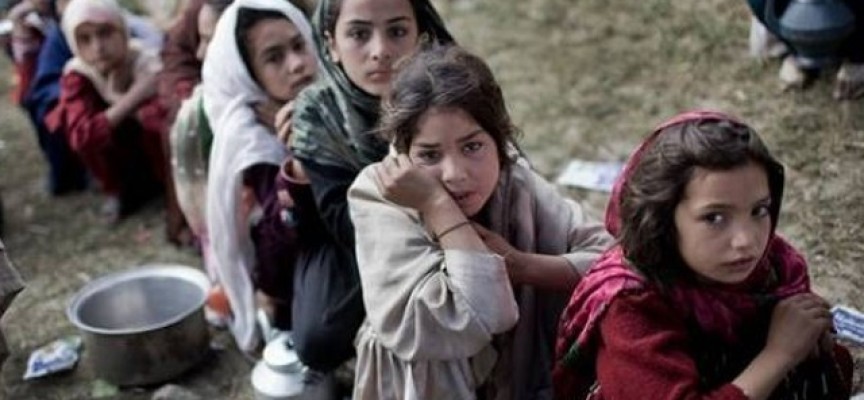

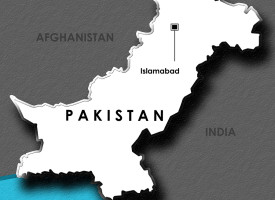
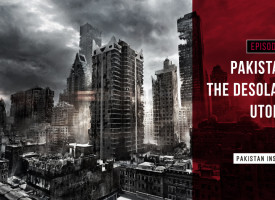
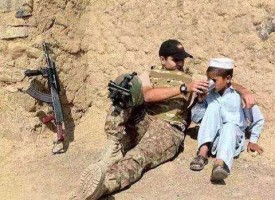
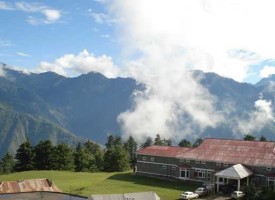
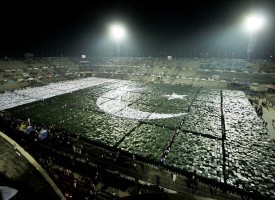
just settle these people in the urban communities i have seen how hard they work, let them make a difference for the better with education and help.